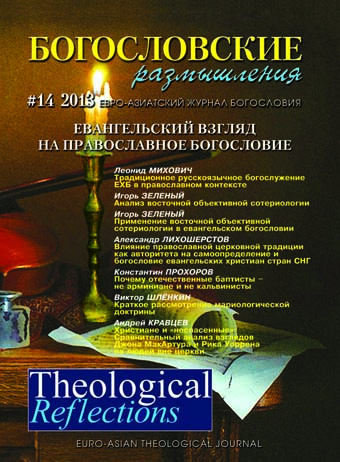Christians and the unsaved: A Comparative Examination of John MacArthur’s and Rick Warren’s Views of People Outside the Church
DOI:
https://doi.org/10.29357/issn.2521-179X.2013.14.249Keywords:
John MacArthur, Rick Warren, People outside the Christian community, Christians and the "unsaved", Comparative analysis of sermons, Dialogue theology of WarrenAbstract
The article is a comparative analysis of two sets of sermons by John MacArthur and Rick Warren (25 sermons from each preacher) with respect to how each of the two pastors portray people outside the Christian community and how they instruct their members to relate to the "unsaved." As evangelicals, both MacArthur and Warren share similar theological convictions, however, when they speak about relationships to those outside the church, significant differences in emphases come to the surface. The article traces these back to different concepts of the world (in the sense of human society as such). Deductive theology by MacArthur tends to see the world negatively and encourages Christian separation from it, whereas dialogical theologizing by Warren emphasizes individual and sees humans in a more positive way, thus encouraging creative but discerning involvement in their lives. The choice of the topic is based on perceived influence of both preachers on emerging theology of missions among evangelicals in Russia.References
- Without bibliography
Downloads
How to Cite
Issue
Section
License
Copyright (c) 2020 Andrey KRAVTSEV

This work is licensed under a Creative Commons Attribution-NonCommercial 4.0 International License.
All articles published in the Journal are distributed under a Creative Commons Attribution-NonCommercial 4.0 International License
By submitting an article for publication in Theological Reflections: Eastern European Journal of Theology the author grants the editors the right to publish the article and distribute it in electronic and print form.
The author reserves all copyrights and the right to use the materials of the article in whole or in part for educational purposes, to write his own dissertations, to prepare abstracts, conference reports, oral presentations, etc., as well as post electronic copies of articles (including the final electronic version downloaded from the journal’s official website) on non-commercial web-resources without the consent of the editorial board and founders.



